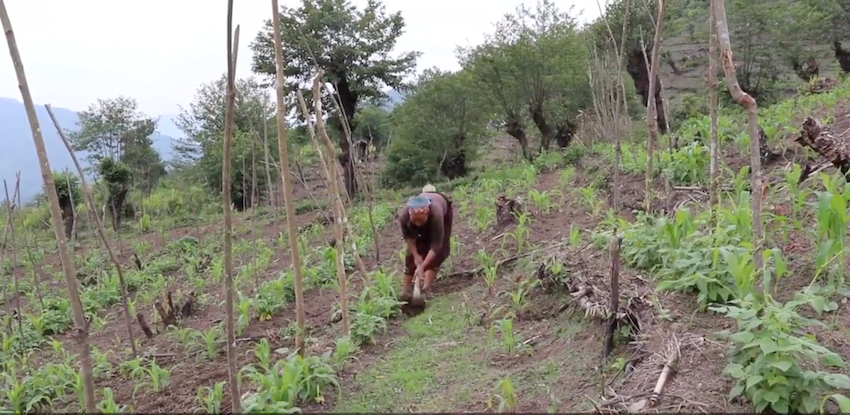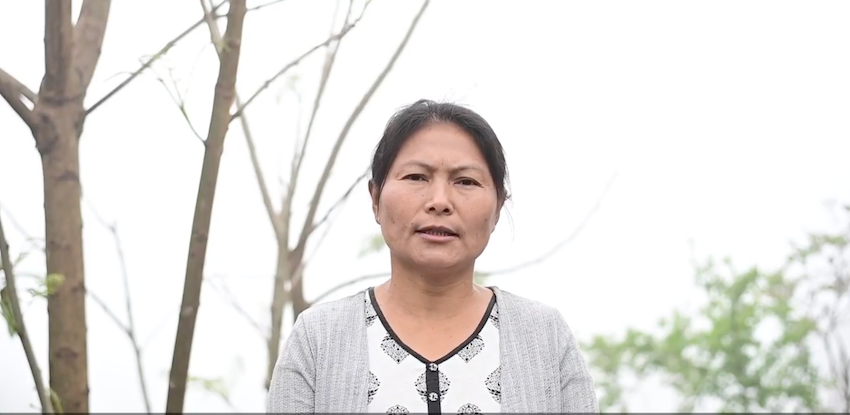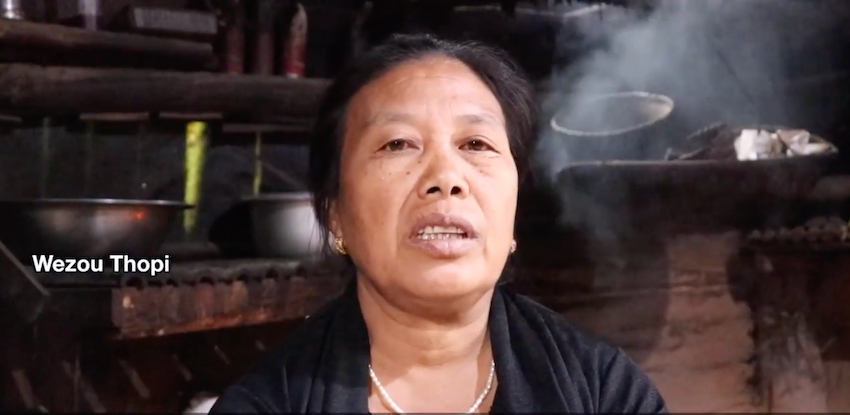
「公民行動影音紀錄資料庫」成立的初衷,是希望將台灣社會中被主流媒體忽略或扭曲的公民行動,以影音形式紀錄下來。十年來,公庫已累積超過3千餘則影音紀錄。我們期望這些紀錄是各界查詢與理解社會事實的管道,因此亦採CC授權作為公共資源。 我們相信,另類媒體的獨立與公共性 須透過群眾認同、涓滴集資才能真正達成 ◈捐款挺公庫:https://donation.civilmedia.tw/
Residents of Nagaland, India, are self-sufficient to tide over difficulties under the epidemic
Video provider/public library partner EngageMedia
Compilation / Hong Yuzeng (public library reporter)
https://cinemata.org/view?m=c4lO65Crj
The film was produced and broadcasted by the North East Network (NEN), which was established in 1995 and is committed to advocating feminist issues in northeastern India, and by participating in policies, improving the health and living environment of local residents, etc. , to advocate related issues.
At the same time, this film is one of a series of short films of "Observation on the ground under the epidemic". There are six short films in this series, which were produced by the international cooperation group "InsightShare", a non-profit organization. This series of short films mainly document the life of indigenous groups in India, the Philippines, South Africa and other rural communities during the epidemic. Through the descriptions of local residents, we can understand the real impact and plight of the epidemic, and how local residents solve the current problems and overcome the difficulties.
During the epidemic, the "Insight Sharing" international cooperation team is committed to identifying local needs and assisting in cultural inheritance and other work. Through long-term cooperation with local groups, etc., we can see the impact and changes of the epidemic on the local area. "Insight Sharing" believes that only by transmitting the most grass-roots voice through social media can the overall social fault be reversed and the goal of repairing the social structure be achieved.

In this film, it mainly records the grass-roots stories of Chizami village in Phek district of Nagaland state in northeastern India, about how local residents maintain their own living and food needs during the epidemic, and see how life crisis and dilemma.
Affected by the epidemic, local farmers have become more aware of the importance of self-sufficiency, and have taught young people how to farm, love the land, and learn traditional knowledge. Different from the previous lifestyle, the local community has further strengthened the interpersonal network, and achieved the goal of helping each other and supporting the life of the neighbors, so as to cope with more unknown changes.
The film mentioned that the new crown pneumonia has hit the world, and even people in different countries, cities and villages are deeply affected. During the epidemic, students were unable to attend school normally, and laborers were forced to suspend work and face unemployment and other difficulties. At the same time, people's food security is deeply affected, and many problems and sufferings also arise. The North-East Network Alliance led a discussion in Qushimi Village, and let people understand the situation of the epidemic, as well as the subsequent impacts and challenges, and also led local residents to understand how to overcome and respond to related problems.

The local residents, Mesihiu Akami and Wezou Thopi, make a living by farming. Messiu Akami believes that during the epidemic period, he was fortunate enough to be able to farm for a living. The community also learned farming skills regardless of age through mutual assistance between neighbors. Besides meeting their own living needs, they also helped migrants to tide over the epidemic. . Messiu Akami believes that, fortunately, his area is rich in natural resources, allowing them to grow the internal network and resources of the community through joint farming.
According to Wezou Thopi, the lockdown has led to many restrictions and even having to suspend work. Even if people work at home, such as weaving, the products cannot be transported to other areas for sale. Or even if they hold money, due to the shortage of materials in the whole society, people with money may not be able to buy sufficient materials.
Under such circumstances, rural life has instead allowed people to live on their own. For Vezzo Toppi, understanding the methods and knowledge of farming is a good way to tide over the difficulties during the epidemic. He believes that by encouraging young people to farm and be self-sufficient, more people can understand how to maintain their own health and safety during the epidemic.

Welhite Naro, chairman of the village committee of Qushimi Village, also mentioned that in response to the development of the epidemic and the city closure policy, people who have worked hard in other places have to return to their hometowns to start a new life. Willett Naro is a farmer himself. He believes that farmers face two issues during the epidemic, including "planting" and "production and sales", which are affected by transportation such as the city closure policy. Especially in the season of plant growth, but it is difficult for farmers to buy saplings and other plants for cultivation. Even if farmers are successful in planting, it is difficult to transport the harvested crops to other areas for sale.
Willett Naro believes that the impact of the epidemic on farmers is even worse. Fortunately, farmers have gradually understood that they relied too much on external resources in the past. But also because of this, local residents are more aware of the importance of self-sufficiency and farming culture. Even by advocating farming and other methods, we can more directly find a way to settle down under the epidemic.
【Extended reading】
Borrowing from the South Asian Epidemic, India's Apocalypse
Note: We have cooperated with the independent media platform EngageMedia since 2014. Gongku will select the video and audio on the EngageMedia platform to translate into Chinese and publish it on the official website of Gongku, so that friends from the Chinese world can understand the civic action in Asia; we will also translate some of the content of the Gongku. In English, it is provided to EngageMedia for publication, and EngageMedia has set up a CivilMedia@Taiwan area to publish videos from the public library to learn about social movements in Taiwan. EngageMedia was established in 2005 as a non-profit business model and a media website with the concept of video sharing. Using the influence of film, the Internet and free software technology to try to form a driving force for changing the environment and society, they believe that independent media and free and open technology operations can not only challenge social justice and environmental crises, but also provide relevant information. Solution. Currently EngageMedia's films span Australia, Southeast Asia and the Pacific, and its content focuses on social justice and environmental issues in the region. They have been cooperating with workers in various fields, such as: independent filmmakers, video activists, and related people and groups engaged in social movements, etc., and hope that through cooperation with various groups, more diversity will be formed. And a wide audience, the team currently has offices in Indonesia, Malaysia and Australia, as well as working partners from Singapore and the Philippines.
Like my work?
Don't forget to support or like, so I know you are with me..
Comment…